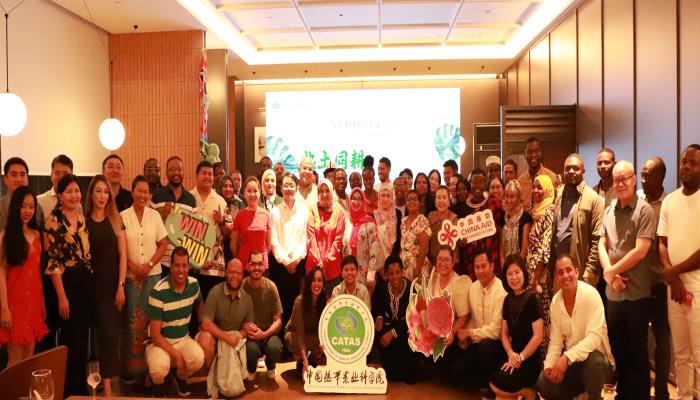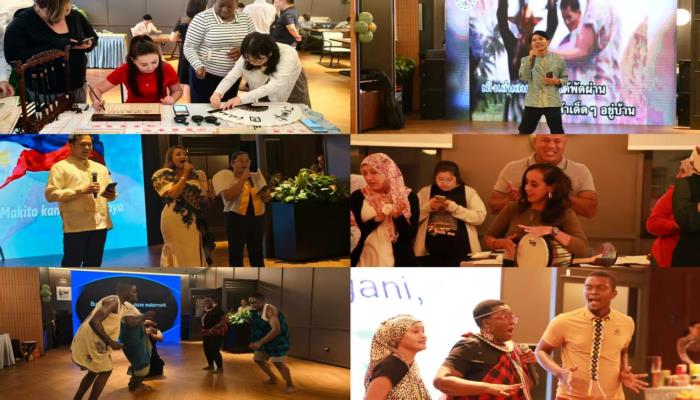“Shared Harvest, Shared Future: Cultivating Together on Tropical Lands” Youth Exchange for Developing Countries Successfully Concludes
Author:Division of International Cooperation
From:CATAS
Date:2025-07-28
Hits:
To enrich the atmosphere of international cooperation and enhance the effectiveness of foreign-aid training, the youth exchange event for developing countries themed "Cultivating Together on Tropical Lands, Setting Sail for a Bountiful Harvest – Shared Harvest, Shared Future" was held in Haikou on May 10. Co-organized by the International Cooperation Office and the Processing Technology Institute of the Chinese Academy of Tropical Agricultural Sciences (CATAS), the event gathered 62 young trainees from 13 developing countries, who are participants of the Belt and Road Training Course on Tropical Fruit Production and Processing Technology and the Training Course on New Tropical Agricultural Technologies for Developing Countries, as well as young scientists and technicians from CATAS. They conducted in-depth discussions focusing on tropical agricultural technology innovation, talent exchange, and industrial cooperation. With culture as a bridge and technology as an enabler, the event sparked intense interactions between diverse cultures and scientific research thinking, injecting youthful vitality into the development of global tropical agriculture.

Group Photo of the Event
In his welcome speech, Li Jihua, Vice President of CATAS, stated that tropical agriculture serves as a vital pillar for food security, poverty alleviation, income increase, and rural revitalization in developing countries. He emphasized that young people, as the main force of innovation, shoulder the mission of driving industrial upgrading. He highlighted that this exchange event has facilitated the establishment of a multilateral platform for "technical discussions, experience sharing, and cultural mutual learning", promoting collaboration among young people from developing countries in scientific and technological innovation, production application, and other fields to jointly address global challenges such as climate change and resource and environmental constraints.
The event invited over 10 young scientists and technicians from CATAS, covering fields such as natural rubber, cassava, bananas, cocoa, date palms, avocados, and tropical vegetables. During exchanges with the trainees, these experts shared China's achievements and application experiences in tropical agricultural technological innovation based on their research practices, providing the trainees with technical references and cooperation ideas.
The cultural exchange session was brilliant and colorful. Group performances like The Harana-Kundiman from the Philippines, Meke from Fiji, and Sega Dance from Mauritius were of distinct styles and fascinating; song and dance performances from Egypt, Kenya, Thailand, the Bahamas, and Kyrgyzstan also had unique features, conveying the cultural charm of their respective countries. The Chinese tea art performance showcased the elegance of traditional Chinese culture, making the vision of "each appreciating its own beauty and all beauties thriving together" increasingly clear through interactions.
This event is a concrete practice in implementing the Global Development Initiative, creating a new platform for exchanges and cooperation among young talents from developing countries in the field of tropical agriculture. All participants expressed that they will take this event as an opportunity to deepen practical cooperation and jointly promote the high-quality development of tropical agriculture.

Highlights of Some Performances




